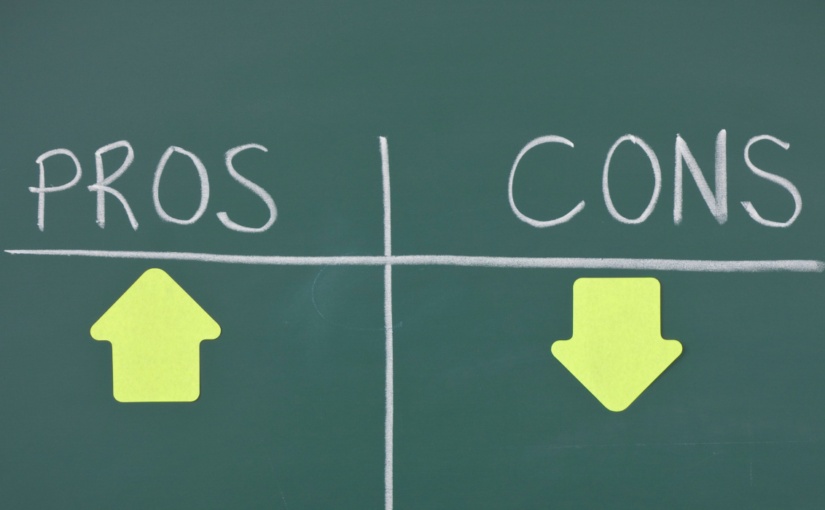back
Breaking Down the Pros and Cons of SBA 504 and SBA 7a Loans
01-2023

Small business owners who want to buy real estate, equipment, or expand their operations frequently turn to Small Business Administration (SBA) loans for financing. The 504 and 7a loan programs are two of the most well-liked SBA loan options. Both have particular advantages and disadvantages, so it’s critical to comprehend the distinctions between the two choices before applying.
Small business owners looking to buy or renovate commercial real estate can apply for an SBA 504 loan. A Certified Development Company (CDC) and the SBA both contribute to the loan’s funding; the CDC contributes 50% of the funding, the borrower contributes 10%, and the lender contributes the remaining 40%. The loan can be used to pay for equipment, real estate, and buildings as well as to refinance previous debt.
The fact that the SBA 504 loan offers long-term, fixed-rate financing, which can give small business owners stability, is one of its biggest advantages. Additionally, the loan requires less of a down payment than conventional commercial real estate loans, making it a more affordable choice for small business owners. To provide a longer repayment period than conventional commercial real estate loans, the loan is typically structured with a 10-year term for the CDC portion and a 20-year term for the lender portion.
The SBA 504 loan does have some disadvantages, though. The loan’s limited applicability for other business requirements stems from its restriction to the purchase or improvement of commercial real estate. The documentation requirements can be strict, and the loan process can be drawn out and complicated.
A more adaptable option is the SBA 7a loan, which can be used for a range of business needs, including working capital, inventory and supply purchases, and equipment purchases. An SBA-approved lender offers the loan, which can be used to start or grow a business, pay off debt, or buy an existing company.
The flexibility of the SBA 7a loan is one of its main advantages. Small business owners who do not meet the requirements for conventional bank loans may find the loan to be a good option as it can be used for a variety of business needs. The SBA 7a loan also has a longer repayment term than conventional business loans, giving small business owners more time to pay back the loan.
The SBA 7a loan does, however, have some disadvantages. The documentation requirements can be strict, and the loan application process can be drawn out and complicated. A personal guarantee from the borrower may be required by the SBA, putting their personal assets at risk, and the loan may have a higher interest rate than conventional business loans.
The amount of funding you require should also be taken into account when deciding between an SBA 504 and SBA 7a loan. The maximum loan amount for an SBA 504 loan is $5 million, whereas the maximum loan amount for an SBA 7a loan is $5 million for the majority of purposes but can go up to $5.5 million for purposes like export working capital. This indicates that the SBA 7a loan might be a better choice for you if you’re looking for a bigger loan.
It’s also important to keep in mind that while SBA 7a loans are more flexible and can also be used for working capital and inventory, SBA 504 loans are typically used for fixed assets like real estate, machinery, and equipment. The SBA 504 loan would be the best option if you’re looking to buy or improve a commercial property, but the SBA 7a loan would be preferable if you’re looking for more flexible funding to support your operations.
In conclusion, SBA 504 and SBA 7a loans each have particular advantages and disadvantages. While the SBA 7a loan is a more versatile option that can be used for a variety of business needs, the SBA 504 loan is a good choice for small business owners looking to buy or improve commercial real estate. Before applying for an SBA loan, it’s critical to comprehend the distinctions between the two options, the amount of funding you need, and your unique business requirements. It’s also crucial to keep in mind that both loans require a strong credit history and stable financials, so check your credit before applying and get all the paperwork ready. Overall, both SBA loans are excellent choices for small business owners seeking financing to expand their operations, but it is crucial to carefully weigh the advantages and disadvantages of each loan and determine which one is the best fit for your unique company’s requirements.
F2H Capital Group is a debt advisory firm specializing in negotiating the best terms for your commercial real estate projects. The company offers a range of financial products and services, including fixed loans, bridge loans, and construction loans across all asset types. Please contact us for any of your financing needs.

